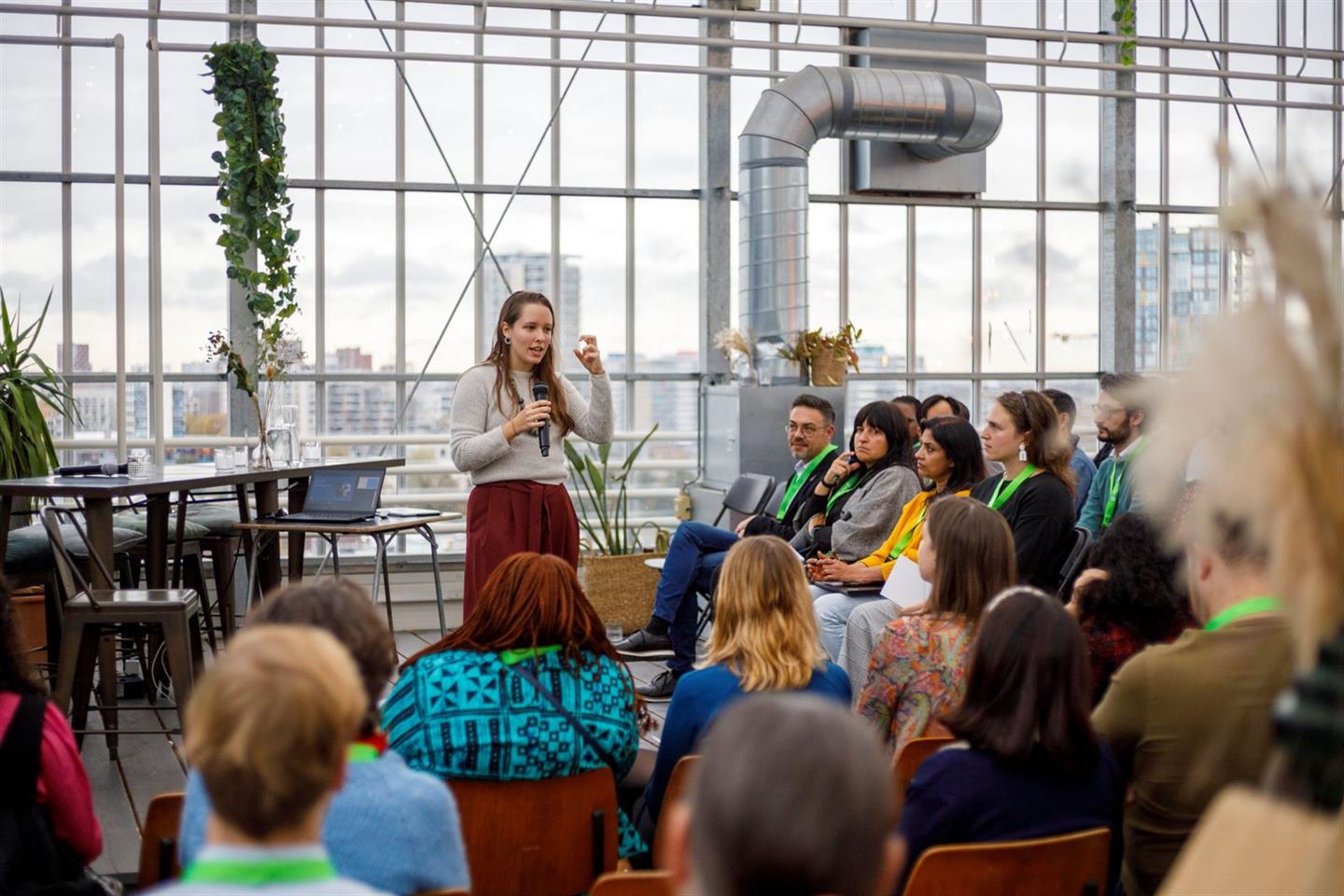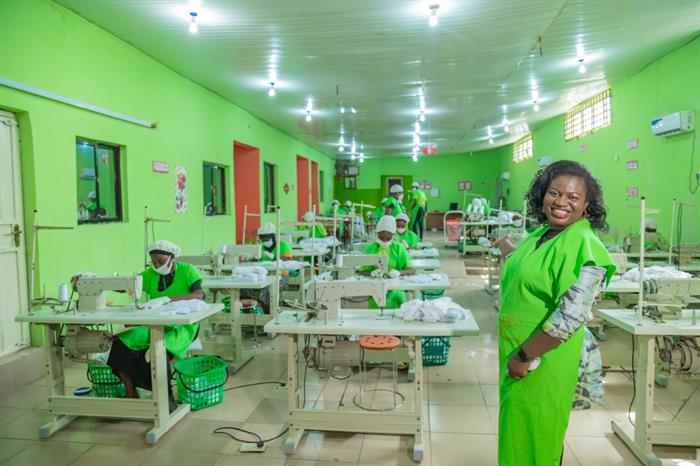The Pursuit of Responsible Business Models by Impact SMEs: Take a look at a better future!

Blog by Lucie Blum
At Oxfam Novib, we believe that social entrepreneurship and impact-driven enterprises are key in creating thriving societies on a thriving planet. In the past 8 years, our Impact SME program has supported 511 Small and Medium Enterprises to scale up their impact. At the Responsible Business Forum, we invited 16 of these impact-driven enterprises from Cambodia, Egypt, Kenya, Nigeria, Somaliland and Uganda to share their insights and experiences! Click here to know more.
All across the world, social entrepreneurs are aiming to make innovative impactful and responsible business choices within the confines of todays’ exploitative and extractive economic system. During the Responsible Business Forum, we asked entrepreneurs to reflect on the challenges they face in this pursuit of regenerative and fair business practices. You can read our recent blog where we bring together key insights from the Forum here. In this blog, we will further dive into core dimensions of designing business models that are truly responsible: looking at the gradual journey of entrepreneurs towards impact and how governments, investors and civil society can better support them.
Towards Impact: step by step
Who are impact entrepreneurs? How do they create social enterprises? During a panel on Responsible Business in Practice, Norbert Binot shared his journey as the founder of Fair Farms and Farmforce in Cambodia. The enterprise has reached over 1.1 million farmers, in the aim to build a better food supply that respects the environment and ensures a fair deal for the farmers involved. “If we want to help the farmers, we have to literally wear their shoes. Fail a bit, learn from that… Without really knowing where we were going, we ended up being a social enterprise. It’s possible to be a social entrepreneur and be successful.”
Norbert’s experience is one example where going from ‘classic’ to ‘social’ entrepreneurship models is an incremental process, each improvement demanding to balance financial constraints and desire for a better world. It is in this process of gradual change which many enterprises can undertake, that institutional support can prove decisive.
The role of governments and NGOs
Nevertheless, while impact enterprises innovate daily to challenge injustice in a degenerative and divisive economy, they often lack support from financial and political institutions. In most low and lower-middle income countries, micro, small, and medium enterprises account for 60-70% or more of total employment, and at least 30-40% of GDP (IFC). Yet, Small and Medium Enterprises (SME) struggle to access forms of capital that meets their needs: SMEs in the aforementioned countries face a $930 billion financing gap (IFC). Impact enterprises, whose goal is to have long-lasting positive impact instead of just making money, tend to struggle even more to find funds. As institutional response to this gap is limited, the Responsible Business Forum was also an opportunity to reflect on funding mechanisms and start looking for solutions.
As such, on the first day of the forum, we held a reflective workshop on diverse stakeholders’ role for making responsible businesses the norm. One of the groups reflected on how donors could better support SMEs to lead an efficient and ethical transition to better business practices. They found that they need donors to engage with SMEs when designing grant mechanisms, but also to simplify application processes. “Today, businesses who get institutional funding are not the ones who deserve and need it the most, but the ones who have time and capacity to apply. Instead of giving specific requirements for grant applications, donors must adapt to where the money is needed. For instance, they could look directly at financial statements and company data to decide who to give their money to,” added Olivia Onyemaobi, CEO of Pad Up Creations (click here to learn about her impact journey!).

Creating the responsible business world of the future
As explained in our previous blog, our current economic system requires businesses to make more money each year. Conventionally, this value is then taken out of the enterprise, and turned into extra revenue for CEOs and shareholders. Too large a share of profits is thus not used to raise wages, alleviate poverty, or mitigate climate change, it is instead used to make rich owners even richer. This model of financial extraction hampers businesses’ ability to prioritize social ambitions, invest in their communities and deliver positive impact.
The Responsible Business Forum created a haven to explore economic models that go beyond sustainability and inclusion and instead focus on being regenerative and fair. In addition to steward ownership, we explored solutions offered by cooperatives, open source knowledge and tools, or circular economic practices. After two days of panels, workshops and discussions, we challenged the impact entrepreneurs to search for new ways to redistribute their own resources towards social impact and ecologically regenerative practices.
Marion Etiang-Busingye's group worked on how her enterprise, Sheacare Naturals, could upcycle more waste into manufactured products, and use the additional income to offer financial and social opportunities for the women cooperative she works with. Doing this would enable her to improve the wages and work environment of her employees while ensuring her company’s long-term partnership with cooperatives (on which her supply of Shea nuts relies) in the face of changing and challenging economic times.
Marion also shared her goal to buy her own piece of land to secure access to the trees needed for making Shea butter, while protecting Shea trees from deforestation: a risk constantly increasing as the charcoal industry competes with shea farmers for land exploitation. The RBF workshop group thought along with Marion on how co-buying land with a partner women cooperative might enable her to afford such an investment and ensure its productivity in the long-term. Learn more about Sheacare Naturals here.
The world we live in today puts profit first, at the cost of people and planet. The Responsible Business Forum brought together people who fight every day to reverse these priorities. Through the stories of Impact SMEs, we aim to inspire others and spread the word that another world is not only possible but already in the making. The RBF was an opportunity for international and Dutch enterprises to connect and share unique paths towards a distributive and regenerative economy. The two days of discussions and workshops sparked the first steps towards a global community of enterprises taking action for a future that puts people and planet first.




